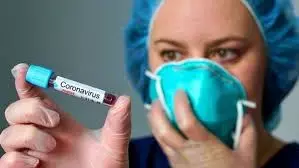- Home
- Medical news & Guidelines
- Anesthesiology
- Cardiology and CTVS
- Critical Care
- Dentistry
- Dermatology
- Diabetes and Endocrinology
- ENT
- Gastroenterology
- Medicine
- Nephrology
- Neurology
- Obstretics-Gynaecology
- Oncology
- Ophthalmology
- Orthopaedics
- Pediatrics-Neonatology
- Psychiatry
- Pulmonology
- Radiology
- Surgery
- Urology
- Laboratory Medicine
- Diet
- Nursing
- Paramedical
- Physiotherapy
- Health news
- Fact Check
- Bone Health Fact Check
- Brain Health Fact Check
- Cancer Related Fact Check
- Child Care Fact Check
- Dental and oral health fact check
- Diabetes and metabolic health fact check
- Diet and Nutrition Fact Check
- Eye and ENT Care Fact Check
- Fitness fact check
- Gut health fact check
- Heart health fact check
- Kidney health fact check
- Medical education fact check
- Men's health fact check
- Respiratory fact check
- Skin and hair care fact check
- Vaccine and Immunization fact check
- Women's health fact check
- AYUSH
- State News
- Andaman and Nicobar Islands
- Andhra Pradesh
- Arunachal Pradesh
- Assam
- Bihar
- Chandigarh
- Chattisgarh
- Dadra and Nagar Haveli
- Daman and Diu
- Delhi
- Goa
- Gujarat
- Haryana
- Himachal Pradesh
- Jammu & Kashmir
- Jharkhand
- Karnataka
- Kerala
- Ladakh
- Lakshadweep
- Madhya Pradesh
- Maharashtra
- Manipur
- Meghalaya
- Mizoram
- Nagaland
- Odisha
- Puducherry
- Punjab
- Rajasthan
- Sikkim
- Tamil Nadu
- Telangana
- Tripura
- Uttar Pradesh
- Uttrakhand
- West Bengal
- Medical Education
- Industry
New COVID-19 test detects viral RNA quickly and accurately

Researchers have developed a potentially more accurate diagnostic test that is based on plasmonic photothermal sensing.The proof-of-concept study has been published in ACS Nano.
The polymerase chain reaction (PCR) test for diagnosing Covid 19 is a sensitive method that amplifies SARS-CoV-2 RNA from patient swabs so that tiny amounts of the virus can be detected.But as the pandemic surges, this is showing signs of strain because of limited supplies of some reagents and a backlog of samples awaiting available PCR machines and laboratory personnel.
Health experts agree that expanded testing is crucial for controlling the spread of COVID-19. However, testing in many countries, including the U.S., has lagged behind because of limited supplies of some reagents and a backlog of samples awaiting available PCR machines and laboratory personnel.
In addition, a number of false-negative and -positive test results have been reported. Other methods, such as computed tomography (known as "CT") scanning and culturing, do not provide quick or real time results. Jing Wang and colleagues wanted to develop a faster, potentially more accurate COVID-19 test for detecting the SARS-CoV-2 virus that could be a practical alternative to PCR.
The researchers based their test on a technique called localized surface plasmon resonance, which can detect interactions between molecules on the surface of a constructed metallic nanostructure as a local change in refractive index.
The team made DNA probes that recognized specific SARS-CoV-2 RNA sequences and attached them to gold nanoparticles.
When they added pieces of the virus's genome, the RNA attached to the complementary probes like a zipper being closed. The team used a laser to heat up the nanoparticles, making it more difficult for imperfectly matched sequences to remain attached, reducing false-positives.
For example, a nucleic acid "zipper" missing a couple of teeth -- indicating a partial mismatch -- would unzip under these conditions. In this way, the researchers could discriminate between SARS-CoV-2 and its close relative, SARS-CoV-1.
The assay detected amounts of viral RNA below those present in respiratory swabs in a matter of minutes. Although the test still needs to be tested on intact viral RNA from patient samples, it could help relieve the current pressure on PCR-based tests, the researchers say.
for further references log on to:
ACS Nano 2020, XXXX, XXX, XXX-XXX
Dr Kamal Kant Kohli-MBBS, DTCD- a chest specialist with more than 30 years of practice and a flair for writing clinical articles, Dr Kamal Kant Kohli joined Medical Dialogues as a Chief Editor of Medical News. Besides writing articles, as an editor, he proofreads and verifies all the medical content published on Medical Dialogues including those coming from journals, studies,medical conferences,guidelines etc. Email: drkohli@medicaldialogues.in. Contact no. 011-43720751


